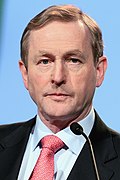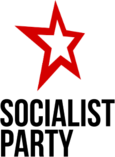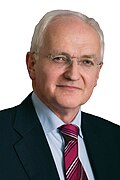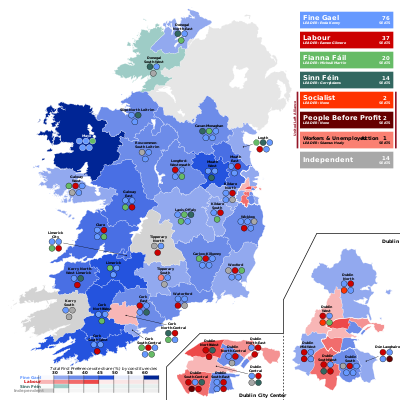
Back Eleccions al Dáil Éireann de 2011 Catalan Wahlen zum Dáil Éireann 2011 German Elecciones generales de Irlanda de 2011 Spanish Élections générales irlandaises de 2011 French Olltoghchán na hÉireann, 2011 Irish Elezioni generali in Irlanda del 2011 Italian Pilihan raya umum Ireland 2011 Malay Ierse parlementsverkiezingen 2011 Dutch Wybory parlamentarne w Irlandii w 2011 roku Polish Eleições parlamentares irlandesas de 2011 Portuguese
| ||||||||||||||||||||||||||||||||||||||||||||||||||||||||||||||||||||||||||||||||||||||||||||||||||||||||||||||||||||||||||||||||||||||||||||||||||||
166 seats in Dáil Éireann[a] 84 seats needed for a majority | ||||||||||||||||||||||||||||||||||||||||||||||||||||||||||||||||||||||||||||||||||||||||||||||||||||||||||||||||||||||||||||||||||||||||||||||||||||
|---|---|---|---|---|---|---|---|---|---|---|---|---|---|---|---|---|---|---|---|---|---|---|---|---|---|---|---|---|---|---|---|---|---|---|---|---|---|---|---|---|---|---|---|---|---|---|---|---|---|---|---|---|---|---|---|---|---|---|---|---|---|---|---|---|---|---|---|---|---|---|---|---|---|---|---|---|---|---|---|---|---|---|---|---|---|---|---|---|---|---|---|---|---|---|---|---|---|---|---|---|---|---|---|---|---|---|---|---|---|---|---|---|---|---|---|---|---|---|---|---|---|---|---|---|---|---|---|---|---|---|---|---|---|---|---|---|---|---|---|---|---|---|---|---|---|---|---|---|
| Turnout | 69.9% | |||||||||||||||||||||||||||||||||||||||||||||||||||||||||||||||||||||||||||||||||||||||||||||||||||||||||||||||||||||||||||||||||||||||||||||||||||
| ||||||||||||||||||||||||||||||||||||||||||||||||||||||||||||||||||||||||||||||||||||||||||||||||||||||||||||||||||||||||||||||||||||||||||||||||||||
| ||||||||||||||||||||||||||||||||||||||||||||||||||||||||||||||||||||||||||||||||||||||||||||||||||||||||||||||||||||||||||||||||||||||||||||||||||||
The 2011 Irish general election took place on Friday 25 February to elect 166 Teachtaí Dála[a] across 43 constituencies to Dáil Éireann, the lower house of Ireland's parliament, the Oireachtas. The Dáil was dissolved and the general election called by President Mary McAleese on 1 February, at the request of Taoiseach Brian Cowen.[3] The 31st Dáil met on 9 March 2011 to nominate a Taoiseach and approve the new ministers of the 29th government of Ireland.
Cowen had previously announced on 20 January that the election would be held on 11 March, and that after the 2011 budget had been passed he would seek a dissolution of the 30th Dáil by the President.[4] However, the Green Party, the junior party in coalition government with Cowen's Fianna Fáil, withdrew from government on 23 January, stating that it would support only a truncated finance bill from the opposition benches, in order to force an earlier election.[5] On 24 January, Finance Minister Brian Lenihan Jnr reached an agreement with the opposition in Dáil Éireann to complete all stages of passing the finance bill in both houses of the Oireachtas by 29 January—following which the Dáil was to be dissolved immediately.[6] Constitutionally, following a Dáil dissolution, an election must be held within 30 days.[d]
Following the collapse of the coalition, the then minority governing party, Fianna Fáil, sought to minimise its losses following historically low poll ratings in the wake of the Irish financial crisis.[7] Fine Gael sought to gain a dominant position in Irish politics after poor results in the 2000s, and to replace Fianna Fáil for the first time as the largest party in Dáil Éireann.[8] The Labour Party hoped to make gains from both sides, and was widely expected to become the second-largest party and to enter into coalition government with Fine Gael;[9] its highest ambition at the start of the campaign, buoyed by record poll ratings in preceding months, was to become the leading partner in government for the first time in the party's 99-year history.[10] The Green Party, having been in coalition with Fianna Fáil during the Government of the 30th Dáil, faced stiff competition for its votes and was expected to lose at least four of its six seats.[11] Sinn Féin was expected to make gains, encouraged by a by-election victory in November 2010 and by opinion polls which placed it ahead of Fianna Fáil. Some other left-wing groups, including People Before Profit, Workers and Unemployed Action and the Socialist Party, contested the general election under a joint banner, the United Left Alliance.[12]
Fianna Fáil was swept from power in the worst defeat of a sitting government since the formation of the Irish state in 1922.[13] The party lost more than half of its first-preference vote from 2007, and garnered only 20 seats. It was the third-largest party in the 31st Dáil; this was the first election since that of September 1927 out of which it did not emerge the largest party in the chamber. The Irish Times, Ireland's newspaper of record, described Fianna Fáil's meltdown as "defeat on a historic scale."[14] Fine Gael won 76 seats, becoming the largest party in the Dáil for the first time in its 78-year history, while the Labour Party became the second-largest party, with 37 seats; Sinn Féin also increased its number of seats, while the Greens lost all of theirs. Fine Gael leader Enda Kenny became Taoiseach, in a coalition with Labour.[15][16][17][18][19]
- ^ Electoral Act 1980, s. 36: Re-election of outgoing Chairman of Dáil (No. 23 of 1980, s. 36). Enacted on 23 December 1980. Act of the Oireachtas. Retrieved from Irish Statute Book.
- ^ "Louth: 2011 general election". Irish Elections. Archived from the original on 30 September 2020. Retrieved 17 August 2022.
- ^ "Election date confirmed as February 25". BreakingNews.ie. 1 February 2011. Archived from the original on 4 February 2011. Retrieved 1 February 2011.
- ^ "Termination of Ministerial Appointments: Announcement by Taoiseach". Dáil Éireann Debate. Oireachtas. 20 January 2011. pp. Vol. 726 No. 5. Archived from the original on 2 November 2011. Retrieved 22 January 2011.
- ^ Cite error: The named reference
rte20110123_1was invoked but never defined (see the help page). - ^ "Election due after deal struck". Irish Independent. 24 January 2011. Archived from the original on 25 January 2011. Retrieved 24 January 2011.
- ^ "The silver lining in the cloud over Fianna Fáil". Belfast Telegraph. 1 February 2011. Archived from the original on 19 October 2012. Retrieved 1 February 2011.
- ^ "Fianna Fáil must seek to return to ethical purity". The Mayo News. 1 February 2011. Archived from the original on 19 February 2011. Retrieved 1 February 2011.
- ^ Halpin, Padraic (1 February 2011). "Factbox - Irish Labour Party leader Eamon Gilmore". Reuters. Archived from the original on 2 December 2018. Retrieved 6 July 2021.
- ^ "Gilmore can succeed with perception and perseverance". The Sunday Business Post. 9 January 2011. Archived from the original on 21 July 2011. Retrieved 1 February 2011.
- ^ "Where the battles will be won and lost". The Sunday Business Post. 30 January 2011. Archived from the original on 21 July 2011. Retrieved 1 February 2011.
- ^ "New 'United Left Alliance' formed". RTÉ News. 25 November 2010. Archived from the original on 2 November 2012. Retrieved 25 November 2010.
- ^ Lord, Miriam (28 February 2011). "Angry electorate coldly voted to liquidate Fianna Fáil". The Irish Times. Archived from the original on 1 November 2011. Retrieved 6 March 2011.
- ^ Ferriter, Diarmaid (1 March 2011). "Recapturing relevance a huge challenge for FF". The Irish Times. Archived from the original on 3 March 2011. Retrieved 1 March 2011.
- ^ "Irish election: Enda Kenny claims opposition victory". BBC News. 26 February 2011. Archived from the original on 15 November 2018. Retrieved 20 June 2018.
- ^ Doyle, Kilian (27 February 2011). "Fine Gael poised to lead next government as FF collapses". The Irish Times. Archived from the original on 1 November 2011. Retrieved 27 February 2011.
- ^ McDonald, Henry (27 February 2011). "Fianna Fáil trounced as Fine Gael and Labour set to form coalition". The Guardian. London. Archived from the original on 11 January 2020. Retrieved 11 December 2016.
- ^ "First steps taken to form coalition government". Irish Independent. 28 February 2011. Archived from the original on 3 March 2011. Retrieved 6 March 2011.
- ^ "Irish parties agree to form coalition government". CNN. 5 March 2011. Archived from the original on 9 November 2012. Retrieved 5 March 2011.
Cite error: There are <ref group=lower-alpha> tags or {{efn}} templates on this page, but the references will not show without a {{reflist|group=lower-alpha}} template or {{notelist}} template (see the help page).
© MMXXIII Rich X Search. We shall prevail. All rights reserved. Rich X Search








